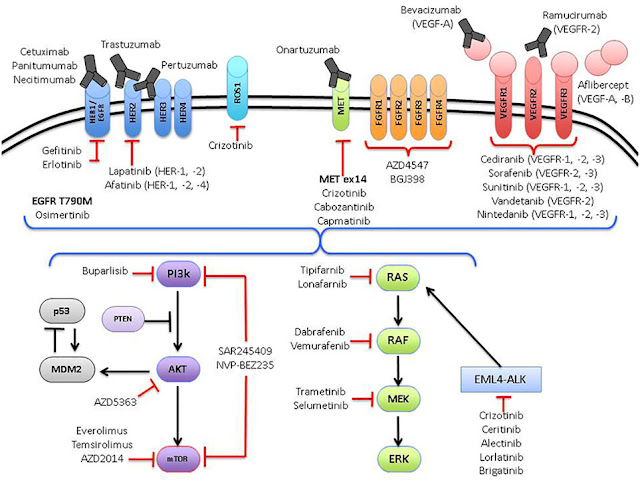Over the past decade, major advances have been made in the management of
advanced non-small cell lung cancer (NSCLC). There has been a
particular focus on the identification and targeting of putative driver
aberrations, which has propelled NSCLC to the forefront of precision
medicine. Several novel molecularly targeted agents have now achieved
regulatory approval, while many others are currently in late-phase
clinical trial testing.
These antitumor therapies have significantly
impacted the clinical outcomes of advanced NSCLC and provided patients
with much hope for the future. Despite this, multiple deficiencies still
exist in our knowledge of this complex disease, and further research is
urgently required to overcome these critical issues. This review traces
the path undertaken by the different therapeutics assessed in NSCLC and
the impact of precision medicine in this disease. We also discuss the
areas of “imprecision” that still exist in NSCLC and the modern
hypothesis-testing studies being conducted to address these key
challenges.




